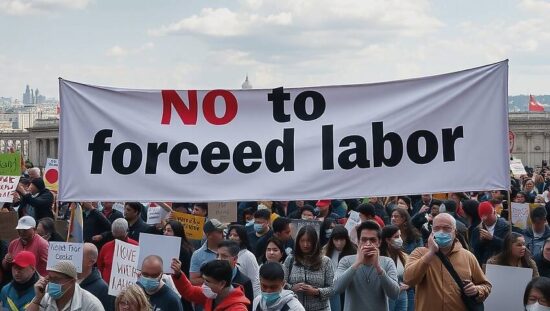The head of the Social Committee at the IG Metall union, Hans-Jürgen Urban, has sharply criticized the debate on the introduction of a work obligation for recipients of the basic income. Urban spoke to the “Redaktionsnetzwerk Deutschland”(Friday edition), expressing his disapproval of the idea.
Currently, recipients of the basic income who are capable of working are already being encouraged to take up employment. Those who fail to do so will face sanctions. According to Urban, 0.4 percent of the 3.4 million basic income recipients, or around 16,000 people, were affected by this policy in the past. Urban believes that a CEO who focuses on a problem of this magnitude should resign.
Urban also rejected the proposal to introduce an unpaid waiting period for employees on sick leave. He argued that the real intention behind this proposal is to reduce wages. “With sick employees, a sick economy does not recover”Urban emphasized.
Urban attributed the increase in sick leave days not to malingering, but rather to the more comprehensive electronic reporting system. He also pointed out that a culture of mistrust has developed in the workplace, with some employees opting to submit a doctor’s note from the first day of their illness, rather than waiting the three days as was previously the case, in an effort to avoid suspicion.
Germany ranks in the middle of the OECD countries in terms of the number of workdays lost due to illness. Urban believes the current debate is diverting attention from the real issues, such as the alarming increase in mental health problems.
Urban is adamant that burnout is on the verge of becoming a widespread health issue of the 21st century. He argues that the demands and workload are increasing, but employees are often not provided with the necessary resources to meet these demands. There is a lack of further training, leading to a heightened pressure to perform and feelings of being overwhelmed.





